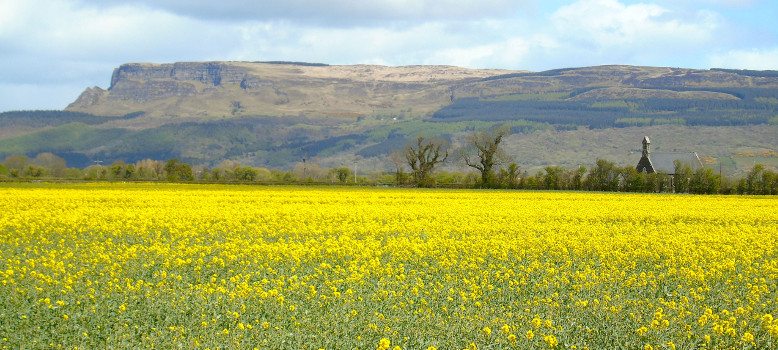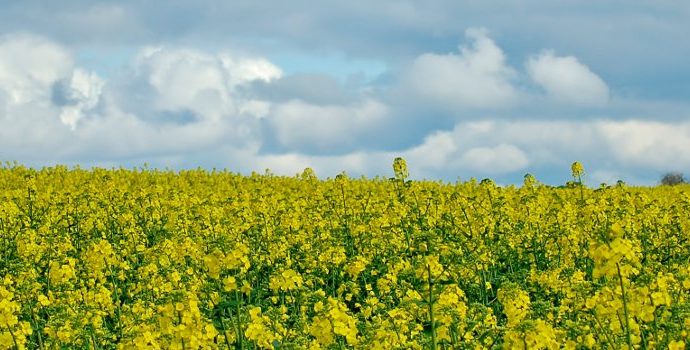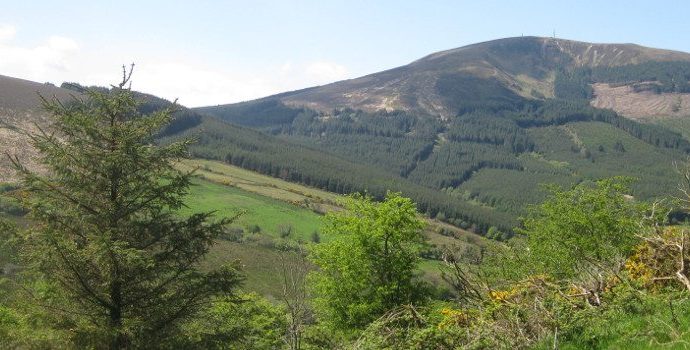Environment Reports
Environment Council Report November 2024

Activity since last National Council
- There has been significant activity in addressing agricultural pressures on Water Quality, these include:
- The Water Action Plan 2024: A River Basin Management Plan 2022 to 2027 was published on the 3rd September. The plan identifies nutrient loss (phosphorus and nitrogen) from farmland as a significant pressure as well as inadequately treated waste water and physical impacts on water bodies, due to river barriers, and drainage of lands and rivers. The plan references the work that is ongoing and well as new measures:
- The Nitrates Action Programme, which strengthened controls and implement new measures to reduce nutrient (N & P) losses.
- The Farming for Water European Innovation Partnership (EIP) which is focussed on promoting the adoption of innovative best practice in nutrient management to reduce losses of phosphorus, nitrogen, sediment and pesticides to water from agricultural lands.
- Strengthened inspection programme via the National Agricultural Inspection Programme (NAIP) overseen by the EPA.
- New measures in CAP to protect water quality under ACRES and Eco-schemes.
- Other additional measures include Teagasc plan to develop online Farm Sustainability Plan, extension of ASSP and LAWPRO as well as upskilling and training programmes for farmers.
- The application of Natural Water Retention Measures (NWRM) and other suitable measures.
The full Water Action Plan 2024 can be viewed here.
- Retaining Ireland’s Nitrates Derogation – Common Objectives – A Joint Declaration from Farm Organisations, Co-operatives and the Dairy and Meat Processors was published on 16th September. The document sets out some common objective which include:
- Fair analysis of the impact of agriculture on water quality.
- No further reduction to organic N limits
- Request that the Taoiseach establish a cabinet sub-committee chiefly tasked with securing the nitrates derogation.
- Provide farmers with long-term (10 years) certainty on the derogation to support investment.
- A full impact assessment into the economic, social and environmental implications of a potential further reduction to organic N limits granted under the nitrates derogation.
- Enhanced levels of engagement with farmers.
- Access to user-friendly local and national water quality data.
- Time to be provided for new measures to take effect.
The full document can be viewed here.
- The Water Quality Working Group (WQG) have met on several occasions (in person meetings on the 28th August, 3rdOctober and an online meeting on the 17th October).
- WQG also met with the European Commission Nitrates Team on a farm during visit to Ireland on the 16thSeptember to highlight the distinction of Ireland’s grass-based farming system and the importance of derogation.
- An IFA delegation met separately with the European Commission Nitrates Team on a farm to discuss the actions that were being implemented on farms to protect water quality, farmers commitment to improving water quality and the importance of the derogation.
- The EPA provided an update to the Environment Committee on the roll out of the National Agricultural Inspections Programme (NAIP) which aims to undertaken approx. 3,300 inspections nationally in 2024, increasing to 4,500 inspections in 2025. The EPA provided clarification on f points raised, see Appendix 1. IFA is maintaining regular contact with the EPA team responsible for overseeing programme and developing guidance for Local Authorities.
The Farming for Water EIP, is a €60 million project is a collaboration with Teagasc, Local Authority Waters Programme (LAWPRO) and Dairy Industry Ireland that aims to bring about improvements in water quality. Measures will be designed and implemented in collaboration with farmers and will be targeted specifically to address local challenges (see Appendix 2). Funding is available to farmers in the areas shaded pink in the map.- IFA will be working with Farming for Water team in Q4 2024 and Q1 2025 to promote and encourage farmers in the eligible areas to participate in the project.
- IFA have written to the EPA to get an update on the review of the use of sewage sludge on agricultural land, which is expected to be concluded in Q4 2024.
- There has been a two main activities in the area of Biodiversity, since previous Council, these are:
- IFA made a submission to the phase 1 of the public consultation on the Wildlife Legislation Review on the 13th September 2024 (see Appendix 3). A key proposal from the submission was that a multi-stakeholder Wildlife Legislation Review Group should be established as part of the review process which the objective to support the review of legislation and ensure meaningful engagement with stakeholder.
- The Nature Restoration Law (NRL) was passed on the 17th June 2024, which requires Ireland to submission a Nature Restoration Plan to the European Commission by September 2026.
- Minister Malcolm Noonan announced on the 22nd October that an Independent Advisory Committee is to be established to make recommendations to Minister, with cross-sectoral representation.
- IFA have written to the NRL Team within the National Parks and Wildlife Service (NPWS) to see a meeting on internal progress and data collection in relation to the development of the plan.
- In the area of Climate Action within the farming sector, the following activities have taken place:
- IFA participated in a Land Use Review Phase 2, Citizen Engagement Workshop Group (CELUR) meeting on 18th September and workshop on the 15th October.
- A synthesis report for consultation with relevant Government Departments is expected to be available by 25thNovember.
- IFA participated in a series of Irish Agrifood 2050 Visioning Focus Group workshops in September, October and November. The goal of the workshop is to develop insights into a range of scenarios for the future of the sector which would feed into the modelling teams in Teagasc.
- The Climate Change Advisory Council (CCAC) published its Annual Review 2024 on the 23rd October, see Appendix 4 for a synopsis of the sections relevant to Agriculture. IFA has sought a meeting with the Marie Donnelly, Chair of the CCAC to discuss advancing recommendations.
- The EPA published Quarterly Greenhouse Gas Emissions Indicator Report on 21st October (see Appendix 5).
- Teagasc published the National Farm Survey – 2023 Sustainability Report on the 29th October, the full report can be viewed here.
- Economic sustainability: All farm systems recorded their lowest average incomes in several years in 2023. The year was marked by a sharp decline in milk and cereal prices, lower production volumes, and high input costs exacerbated by poor weather conditions.
- Social sustainability: Due to economic viability issues, household vulnerability (defined as non-viable income levels without off-farm employment) increased notably across dairy, sheep, and tillage farms.
- Environmental sustainability on dairy farms because of lower animal numbers and reduced fertiliser applications, absolute GHG emissions (per farm and per hectare) were lower in 2023 than in the previous two years. Yet, due to reduced milk output following challenging market conditions, GHG and Ammonia emissions per kilogram of milk increased in 2023. Nitrogen (N) and phosphorus (P) balances per hectare declined in 2023 compared to previous years. On non-dairy systems farm-level and per-hectare GHG & Ammonia emissions on cattle, sheep, and tillage farms rose slightly in 2023 compared to the previous year, this was due to slight increases in animal inventories and fertiliser applications (in sheep and tillage systems).
- The EPA State of the Environment report 2024 was published on 3rd October, the report which is published every 4 years is available here. IFA issued a press release on the positive changes and the challenges recognised in the report for Agriculture to meet climate, water quality and biodiversity targets.
- IFA wrote to the Taoiseach and Uisce Eireann (UE) following the decision by the Commission for Regulation of Utilities (CRU) to increase the Non-Domestic Tariff (Water Charges) from the 1st October. In the letters IFA reiterated that the planned increases in water charges disproportionately impact the most vulnerable farmers on fragmented holdings.
- IFA issued a press release calling on the Taoiseach to delay the introduced of increased charges.
- IFA met with UE on the 25th September to strongly oppose the increase in tariffs and highlight the inequity of the proposed increases for farmers with multiple connections. UE estimated that approx. 500 to 600 farmers had multiple connections and that 179,000 letters had issued to customers advising them of the planned increases
- At meeting with UE on the 25th September farmers concerns with regards Urban Waste Water Treatment Plants (UWWTP’s) was discussed (see Appendix 6). If farmers have concerns with regards possible non-compliance, they should make compliant via the following channels:
- Uisce Eireann have a dedicated Customer Service Unit to deal with complaints. Farmers with concerns or evidence of possible non-compliance in treatment plans should contact Uisce Eireann directly by (i) Email: [email protected] or (ii) Phone: 0818 778 778. For more information: https://www.water.ie/contact/general-enquiry/domestic-complaint.
- Or they can contact EPA, the licensing authority for waste water discharge licences. However, EPA encourage the public to contact Uisce Eireann first. Online: EPA have an online system to make environmental complaints, click here or by Phone: LoCall: 0818 33 55 99.
- IFA made a submission to the public consultation on to the proposed extension of the Extended Producer Responsibility (EPR) scheme (see Appendix 7). The IFA is seeking the continuation of the derogation for agricultural tyres under S.I. No. 400/2017 – Waste Management (Tyres and Waste Tyres) Regulations 2017 until:
- the legacy issues with regards waste tyres on farms is addressed,
- an economic assessment of the impact of the expansion of the scheme including proposed costs is undertaken to ensure that the scheme as proposed is competitive and does not adversely affect the market, and
- farmers are provided further opportunities to input into the design of the EPR scheme, so the conditions are effective, deliver the best results and do not create inefficiencies.
- IFA attended the ASSAP Farming Consultative Group meeting on 2nd September in Newcastle West Limerick.
- IFA attended an online meeting organised by Department Agriculture, Food and Marine with regards organising a Hazardous Waste collection on 5th September and 4th October.
- IFA attended IFFPG Management (9th, 30th September and 4th October) and Board (27th September) meeting.
- Representatives from IFFPG met with Department of Environment, Climate and Communication online on the 12th September.
- IFA Environment and Rural Affairs Committee met on 10th September in the Farm Centre, there were presentations on the day from Teagasc (GHG emissions and water quality), LAWPRO (water quality and EPA (National Agricultural Inspection Programme).
- IFA met with USDA official to discuss the EU Deforestation Regulation on the 23rd September in the Farm Centre.
- IFA attended the UCD Earth Institute ‘Democracy and the Environment’ Series IV: Irish Dairy Sector in Museum of Irish Literature, Dublin on 24th September.
- Alice Doyle, Deputy President was a panellist at the event.
- IFA meet with Frank Covery (event organiser) to discuss progress climate action in Agriculture on 23rd October.
- IFA gave a presentation at the Laois (24th September) and Roscommon (23rd October) County Executive meetings.
- IFA attended meetings of the Irish Fertiliser Association (FAI) study tour 8th and 9th October study tour to Northern Ireland on AD and meetings on 4th September and 24th October.
- IFA attended the EPA’s Circular Economy Conference 2024 in Aviva Stadium, Dublin on 25th September.
- IFA attended an online meeting with the EPA on Agriculture Annual Environmental Report on 30th September.
- IFA was a panellist at the Biodiversity & Agriculture session at the Solar Ireland conference 2024 in the RDS, Dublin on 1stOctober.
- IFA attended the EPA Advisory Committee meeting on EPA office, Clonskeagh, Dublin on 4th October.
- IFA Environment and Rural Affairs Committee visited to Brussels on the 14th to 17th October. The itinerary for the visit included IFA-ICOS Irish Agriculture Sector Briefing, with presentations from IFA, ICOS, Teagasc, Bord Bia, Food Drink Ireland and Copa Cogeca. A visit to the European parliament, meeting with Commissioner Mairead McGuinness, a meeting with Boerendbond Representatives on water quality and visit to a dairy farm.
- IFA participated in the UCD’s Literary and Historical Society’s Cull the National Herd Debate on 24th October in the Fitzgerald Debating Chamber in the UCD Student Centre.
- IFA gave an online presentation on Nitrates to the NFU Cymru Virtual Water Quality Group meeting on the 24th October.
- IFA attended online launch Teagasc Farm Sustainability Report 2023 on 29th October.
- Any EU/COPA developments
- On the 12th September, John Murphy, National Environment and Rural Affairs Chair was elected as co-Vice Chair of the COPA Environment Working Party.
- Since taking up the position there have been monthly meetings (18th September and 18th October) to progress work.
- Under the new Chairmanship Mr. Murphy has been allocated responsibility for Nitrates and Climate Adaption.
- Upcoming issues
- The next Water Quality Working Group meeting in on 6th November.
- IFA is in the process of organising a dedicated briefing session with representatives from EPA Water Quality Team in Dublin for the Environment Committee in Q4.
- IFA will be organising a series of meetings/events to promote the Farming for Water EIP at county and branch level to coordinate applications at catchment level.
- IFA Environment and Rural Affairs Committee will meet on the 4th December.
- Finalise briefing note on Ammonia emissions and Government plan to reduce emissions including legal requirements.



